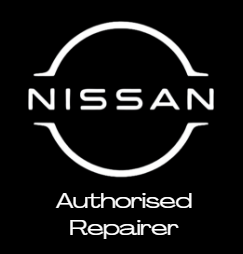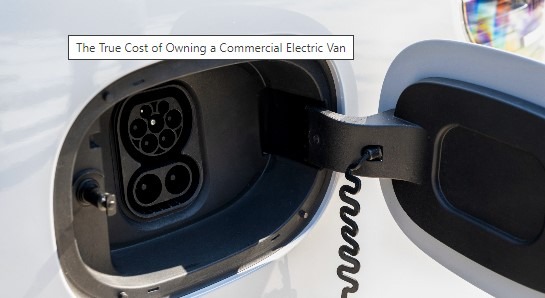The True Cost of Owning a Commercial Electric Van
The True Cost of Owning a Commercial Electric Van
The cost of an electric van can feel high for a first-time purchaser, whether you are a small business owner with two fleet vehicles or manage a large fleet and realise how many vans you must replace to comply with the Government’s 2035 zero emissions tailpipe mandate. There are several positives when you choose to buy a commercial electric van. You never have to pay the daily charge in a zero or low-emissions zone, and contribute to a healthier living environment.
Initial Purchase Price of Electric Vans
The true cost of owning a commercial electric van is not defined by its initial purchase price. You also cannot use the traditional approach to the total cost of ownership (TCO) utilised for internal combustion engine (ICE) vehicles. Business owners initially pay more for an electric van, but it has far fewer engine parts than an ICE vehicle, significantly lowering service costs. You never have to pay for an oil filter or new exhaust again.
What about your electricity bill? It will increase, but it should be compared to what your fuel expenses were for your ICE vans. Consider installing a renewable energy source at your business to lower the energy costs incurred. Did you know commercial electric vans such as the Maxus eDeliver 3 and eDeliver 9 use regenerative braking? It is a recovery mechanism that feeds energy back into the battery every time you brake, increasing your van’s range.
Electric Van Running Costs in the UK
Making the switch to electric vans can be a cost-effective decision for your business, but understanding the specific costs involved is crucial. Here’s a breakdown of the key factors to consider:
- Charging Costs: Consider the cost of electricity, installation of charging stations at your facility, and any applicable government incentives to offset the upfront costs.
- Servicing Costs: There may be costs associated with servicing electric components.
- Maintenance Costs: Factor in the cost of routine maintenance, such as tyre rotations and brake pads, as well as any extended warranties you may consider.
Considering ongoing costs like taxes, insurance, and eventual battery replacement for electric commercial vans is also important.
Government Incentives for Electric Vehicles
In 2022, government incentives for electric cars were stopped. The UK government continues to provide a plug-in van and truck grant until 31 March 2025, and you don’t have to apply for the grant when buying an eligible electric van. The seller includes the relevant discount in the purchase price.
The London Congestion Charge (LCC) was introduced in 2003 to reduce traffic congestion and improve air quality in central London. The LCC is a daily fee levied on most vehicles entering a designated zone within central London. To encourage zero-emission transportation, electric vans are exempt from the congestion charge. However, this exemption is set to expire in December 2025.
Maxus is proud to have six eDeliver models on the list of eligible vehicles. Our Maxus eDeliver 3 (short wheelbase variants) is eligible in the small van category, and several of our eDeliver 3 and eDeliver 9 models can be purchased for the large van category. We even have our Maxus T90 electric pick-up vehicle on the list!
Electric Van Charging Costs
Business owners will factor the electric van charging cost into their expenses, whether charged at the business premises or overnight at someone’s home. High energy prices are impacting the cost of recharging fleet vans on the public recharging network, according to Zapmap, which tracks more than one million charge sessions each month. Use available government incentives to install charging stations at your business to mitigate the public recharging expenses.
Did you know it is easier to calculate electric van charging when you own a Maxus commercial van? The Maxus Intelligence Onboard system is available in each EV and provides live data on the vehicle’s energy consumption, how much energy is added during a charge, how much it costs in each location, and how the total energy costs compare to an ICE vehicle.
Electric Vehicle Battery Life and Replacement Costs
The largest and most expensive component of your commercial electric vehicle is its battery, and the battery replacement cost should be factored into your ownership expenses when making the initial electric van purchase, unless your fleet is replaced at regular intervals per company policy. Batteries last for nearly a decade, depending on their use. Maxus commercial electric vans are available with various battery options, and all our EVs come with an eight-year warranty on the high-voltage battery.
Many factors affect the lifespan of an electric vehicle’s battery, and it is vital to select the correct battery size for your purposes to ensure you achieve the best range. Maxus eDeliver 9 vans have three battery options, working with various battery cooling methods to reduce charge time, extend battery life, and increase the operating range.
Electric Van Maintenance Costs
Electric vans tend to have lower maintenance costs compared to petrol or diesel vans. This is because they have fewer moving parts and require less frequent servicing.
Here’s what you can expect:
- No oil changes: Electric vans don’t require oil changes, eliminating a major maintenance expense.
- Regenerative braking: This system reduces wear and tear on the brakes, extending their lifespan.
- Fewer filters: Electric vans have fewer filters that need replacing compared to traditional engines.
While electric vans may require some specialised maintenance, the overall costs are typically lower. However, regular servicing is still essential, and some components specific to electric vehicles may require specialist attention.
Do You Pay Tax on Electric Vans?
Owning an electric van in the UK comes with a number of tax advantages that can make it a financially attractive option.
- Zero Road Tax: Electric vans are currently exempt from road tax (VED), offering significant savings compared to petrol or diesel vans.
- Reduced Benefit-in-Kind (BiK) Tax: For company vans, BiK tax is a charge on employees for the benefit of using a company vehicle. Electric vans benefit from significantly lower BiK tax rates compared to petrol or diesel models, making them a more tax-efficient option for businesses.
These tax breaks can substantially lower the total cost of owning an electric van, making them a compelling choice for businesses looking to be more eco-friendly and save money in the process.
EV Insurance Costs
The cost of insurance for electric vans can vary depending on several factors:
- Model and Value: A major factor in determining your insurance cost is the specific model of electric van you choose. Generally, electric vans with a higher price tag will translate to higher insurance premiums. Additionally, some electric vans boast advanced technology features like self-driving assistance, which can also impact insurance costs.
- Battery Replacement: EV batteries can be very expensive to replace, and depending on your insurance policy, coverage for the battery may be included or an optional add-on. Some insurers may offer tiered coverage options based on the value of your battery.
- Repair Availability and Costs: Electric vehicles are a relatively new technology, and the repair network for them is still growing. This can mean that finding a qualified repair shop for your electric van might take longer and potentially cost more compared to a traditional gasoline engine.
While electric van insurance may be on par with or slightly more expensive than ICE vehicles, the significant savings you’ll experience on running costs can easily outweigh any difference in insurance premiums.
Financing Options for Switching to Electric Vans
Several financing options can help make electric vans more affordable:
- Government Grants: The UK government’s Plug-in Van Grant helps bring down the initial price tag of electric vans. This grant offsets a portion of the cost, making electric vans a more financially attractive option for businesses looking to adopt eco-friendly practices.
- Electric Van Leasing: Leasing an electric van lets you spread the cost over a fixed term, typically resulting in lower monthly payments compared to a traditional loan.
- Hire Purchase: A hire purchase agreement allows you to finance the van over a set period with the option to own it at the end. This offers the benefit of manageable payments while giving you ownership after the final payment.
By exploring all available financing options, you can find a solution that aligns with your budget and operational needs. Carefully consider each option to find the balance between affordability and the environmental and financial benefits of transitioning to electric vans.
Maxus electric commercial vans are perfect for fleets, and our conversion range gives you flexibility. We have a national service and repairs network, readily available parts, and offer roadside assistance 24 hours a day, 365 days a year. Contact JSholmes today to discuss the cost of your electric van.





